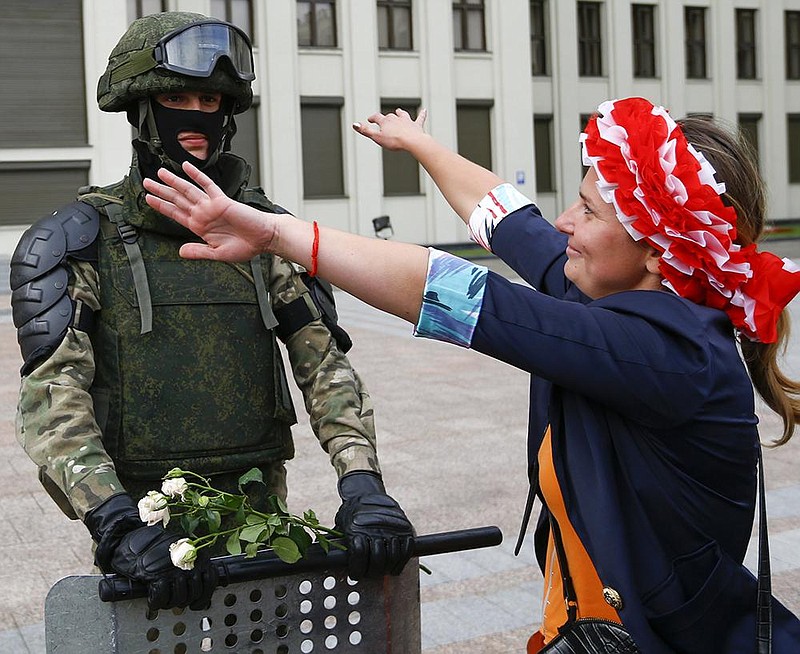If you decide to stay in the system and help the pro-democracy movement from within then you can…

Build a resistance network from within and with outside groups:
• Act on your own or, better, find and get together with others like you on the inside and start building a resistance network of like-minded servicemembers.
• Informally survey your colleagues on how they and their families feel about the ruler and his anti-movement orders. If you sense dilemma and hesitation, ask them to work with you from within.
• Venture to identify movement participants whose family member(s) serve in the security forces (perhaps relying on external allies). Reach out to these members to assess their loyalty to the ruler and, if the opportunity arises, build a resistance network across branches and services.
• Establish contact with retired veterans from your services whom you know are sympathetic to the movement or what it stands for.
• Establish informal contact with legitimate domestic and/or international pro-democracy and human rights groups.
Delay, delay, delay …. and screw up:
• Delay anti-movement orders and actions by work-to-rule: follow scrupulously and zealously all regulations and procedures of your department or agency.
• Show lack of knowledge, or lack of required skills if you are ordered to undertake anti-movement actions. In fact, if your superiors or colleagues want your help in anti-movement activities, pretend that you:
- Do not know how
- Do not know where
- Do not know how to find
- Do not know
- Do not have
- Cannot do
- Cannot share
- Cannot join
- Cannot work
- Are busy
- Want to help
• Show unwitting incompetence and ‘misunderstand’ anti-movement orders. Do actions that turn out to be ‘accidental mistakes,’ either failing to harm or, in fact, helping the movement.
Take time off:
• Call in sick when superiors give you anti-movement orders.
• Take accrued and well-deserved vacation time in case your superiors give you anti-movement orders.
Soften your colleagues’ loyalty to the ruler and/or superiors:
• Share with your colleagues jokes that mock the ruler or your superiors, saying you overheard the jokes. You know well that a strongman’s worst nightmare is when people mock or laugh at him rather than fear or adulate him. A seemingly ambiguous comment—”Jokes about our dear leader are not really funny… only one person gets them”—might pave the way.
• Raise subtle questions about whether you and your colleagues are on the right side of history if they continue being loyal to and serving the ruler.
• Sow doubts about whether the ruler and your superiors can exercise effective control over the country in the face of widespread public noncooperation, and whether ineffective rule can be sustainable.
• Help shift your colleagues’ loyalties away from the ruler, in favor of the constitution and/or the movement and its cause;
• Unmask and de-anonymize those servicemembers who diligently and with enthusiasm implement orders to repress the movement. Use different channels to provide information about them to the movement so that the latter may join in publicly shaming the unmasked individuals.
Shape your colleagues’ views about the movement:
• Acknowledge that the nonviolent movement is comprised of unarmed people that need to be protected, not repressed. If incidents of violence happen on the fringes of the movement take note that the vast majority of people in the movement remain nonviolent.
• Point out that the nonviolent movement, even if engaged in nonviolent disruption that brings a country to a halt, leaves the door open to genuine negotiations on peaceful transfer of power and democratic reforms.
• Help your colleagues distinguish between disinformation/propaganda about the movement and the truth. Refer to legitimate independent sources of information and, if accessible, internally-collected (often publicly confidential) raw data and information about the movement and its actions to present undistorted facts to your colleagues.
Protect your colleagues:
• Protect subordinates who sympathize with the movement and support democratic reforms to the best of your ability.
Document and make good use of the information you have:
• Document anti-movement orders and actions, especially those that violate human rights or are otherwise illegal, as much as you possibly can in a safe way.
• Pass on useful information to the movement via sympathetic veterans of your services or directly.
• Inform the movement when and under what circumstances your superiors want you to use violent force against protesters.
• Inform the movement if, when, and where agents provocateurs are expected to infiltrate their movement or/and its actions.
Ask for written and signed orders and their constitutional compliance:
• Ask your superiors for written and signed orders if these orders are to harm nonviolent protesters or dissidents, and wait to receive them before you act.
• Scrutinize orders from a ruler or your superiors against the constitution and fundamental rights enshrined in it, and ask for written explanations from your superiors about how their orders comply with these principles.
Use the courts if you can:
• Refer (or ask your allies to refer) anti-movement orders you receive from the ruler or superiors to the courts to determine their compliance with existing laws, including the constitution, prior to implementing them. This can buy you and/or the movement extra time.
Help educate the movement:
• Share with the movement suggestions about specific actions and behaviors that would be helpful in swaying your colleagues’ views about the ruler, shifting their loyalty away from him, and generating a positive attitude towards the movement.
• Stress to the movement that its nonviolent discipline is critical for you to bring other servicemembers to your and the movement’s side. It is difficult, perhaps impossible, to convince your colleagues to side with the movement if activists threaten violence against them.
Consider disruptive nonviolent interventions:
• If your internal following allows, organize a strike or sit-in. Issue both economic and political demands, including better working conditions, and call on your families and fellow citizens to come, bring food, and join the action to support and protect the participants. The ruler will likely accuse you of mutiny but he might be gone by the time he or his political minions are able to do anything against you.
Go public if you are exposed:
• If the ruler or superiors discover your actions and you know they intend to arrest you on politically motivated charges, consider going public with your opposition, and seek protection from human rights organizations, political allies, and even from ambassadors or in embassies of democracies present in your country.
Read more of the GUIDE




Leave a Reply